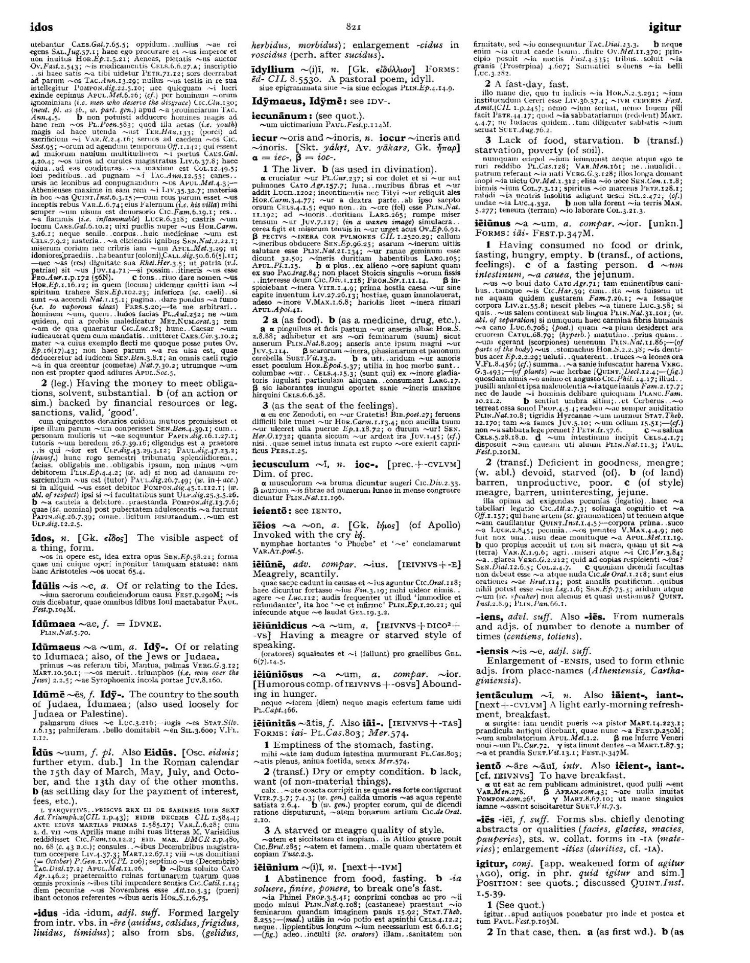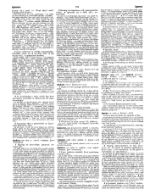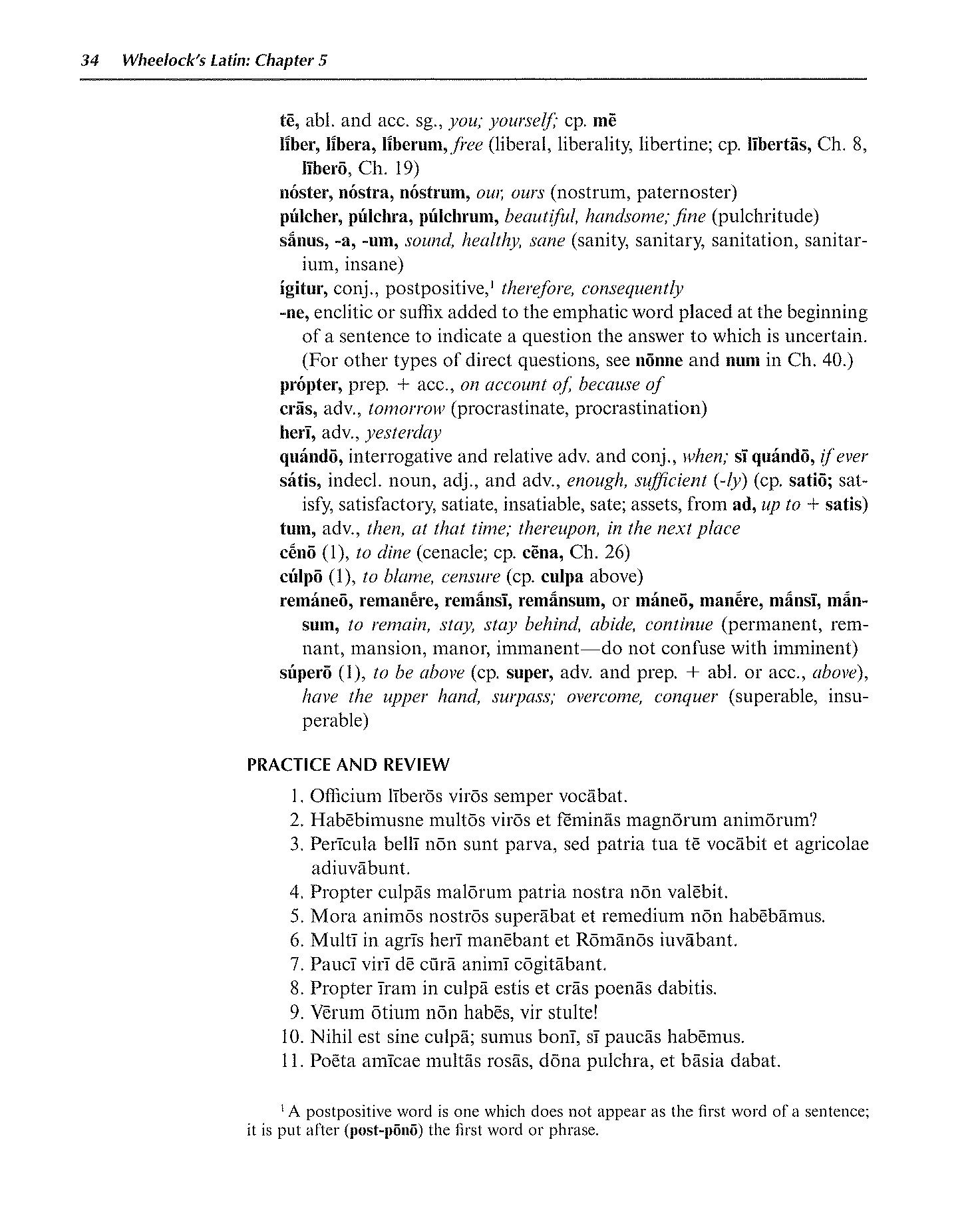
page_listing.tpl
page_subListingDetails.tpl
sub_listingDetails_style1.tpl
sub_listingDetails.title.tpl
igitur therefore
igitur is a Latin Conjunction that primarily means therefore.
Definitions for igitur
Wheelock's Latin
Conjunction
- 1
therefore, consequently
Oxford Latin Dictionary
Conjunction
- 1
In that case, then. (b) (as first wd.) (b) (as second wd.); quid ~? What then? well? (c) (postponed further).
- 2
(expr. inference or result) (Consequently, therefore, then, so: (a) (as first wd.). (b). (as second wd.). (c) (postponed further).
- 3
(in introducing a topic which has been previously promised or hinted at) So then, accordingly.
Sentences with igitur
Latin to English
Malōs igitur in patriā nostrā superābimus.Compare Therefore, we shall overcome evil men in our country.
Omnia igitur iūra cīvibus magnā cūrā cōnservanda sunt.Compare All rights, therefore, ought to be preserved by the citizens with great care.
Gaudeāmus igitur, iuvenēs dum sumus.Compare Let us rejoice them, while we are young.
Quid est igitur propositum his rei publicae gubernatoribus, quod intueri et quo cursum suum derigere debeant?Compare What then is the objective of those who are at the helm of government, which they should never lose sight of, toward which they ought to set their course?
Quisnam igitur liber? Sapiens, sibi qui imperiosus, quem neque pauperies neque mors neque vincula terrent, responsare cupidinibus, contemnere honores fortis, et in se ipso totus, teres atque rotundusCompare Who then is free? The wise man alone, who is a stern master to himself, whom neither poverty nor death nor bonds affright, who has the courage to say "no" again and again to desires, to despise the object of ambition, who is a whole in himself, smoothed and rounded.
Ipse igitur propter sui colendus iustitia sum; nam aliter iustitia non sum.Compare Justice therefore is to be cultivated for its own sake; for otherwise it would not be justice.
Possum igitur principium nego, quum extremus concedo?Compare Can you then deny the premises, when you grant the conclusions?
Data sources
Notes
- Definitions
- Frederick M. Wheelock, Wheelock's Latin, 6th ed., rev. Richard A. LaFleur (New York, NY: HarperCollins Publishers, 2005): 34.
- P. G. W. Glare, Oxford Latin Dictionary, Vols. 1-8 (Oxford: Clarendon Press, 1982): 821.
- Word frequencies
- Christopher Francese, "Latin Core Vocabulary," Dickinson College Commentaries, last modified 2014, http://dcc.dickinson.edu.
- Paul B. Diederich, The Frequency of Latin Words and Their Endings, PhD diss., (Columbia University, 1939).
- Louis Delatte, Suzanne Govaerts, Joseph Denooz, and Etienne Evrard, Dictionnaire fréquentiel et index inverse de la langue latine [Frequency Dictionary and Inverse Index of the Latin Language] (Liège, Belgium: Laboratoire d'analyse statistique des langues anciennes de l'Université de Liège [L.A.S.L.A.], 1981): 120.
Bibliography
Allen, Joseph H. Allen and Greenough's New Latin Grammar for Schools and Colleges: Founded on Comparative Grammar. Edited by James B. Greenough, George L. Kittredge, Albert A. Howard, and Benjamin L. D'Ooge. Boston, MA: Ginn & Company, 1903.
Crystal, David. A Dictionary of Linguistics and Phonetics. 6th ed. Oxford, UK: Blackwell Publishing, 2008.
Delatte, Louis, Suzanne Govaerts, Joseph Denooz, and Etienne Evrard. Dictionnaire fréquentiel et index inverse de la langue latine [Frequency Dictionary and Inverse Index of the Latin Language]. Liège, Belgium: Laboratoire d'analyse statistique des langues anciennes de l'Université de Liège (L.A.S.L.A.), 1981.
Diederich, Paul B. The Frequency of Latin Words and Their Endings. PhD diss., Columbia University, 1939.
Francese, Christopher. "Latin Core Vocabulary." Dickinson College Commentaries. Last modified 2014. http://dcc.dickinson.edu/latin-vocabulary-list.
Gildersleeve, Basil L., and Gonzales Lodge. Gildersleeve's Latin Grammar: Third Edition, Revised, and Enlarged. 3rd ed. London, England: Macmillan and Co., 1903.
Glare, Peter G.W. Oxford Latin Dictionary. Vols. 1-8. Oxford, England: Clarendon Press, 1982.
Krüger, Bernd. "Latin Conjugation Tables." Cactus2000. Accessed May 5, 2023. https://latin.cactus2000.de/index.en.php.
Pierson, Nick. "Sound of Text." Accessed October 26, 2019. https://soundoftext.com.
Wheelock, Frederick M. Wheelock's Latin. 6th ed. Revised by Richard A. LaFleur. New York, NY: HarperCollins Publishers, 2005.
Wiktionary Contributors. "Victionarium." Wikimedia Foundation, Inc. Updated March 18, 2019. https://la.wiktionary.org/wiki/Victionarium:Pagina_prima.
Citation
Chicago (17th ed.)
Allo Contributors. "igitur (conj.) - Latin Word Definition." Allo Latin Dictionary. Last modified . Accessed February 20, 2026. http://ancientlanguages.org/latin/dictionary/igitur.
Entry created on . Last updated on .








